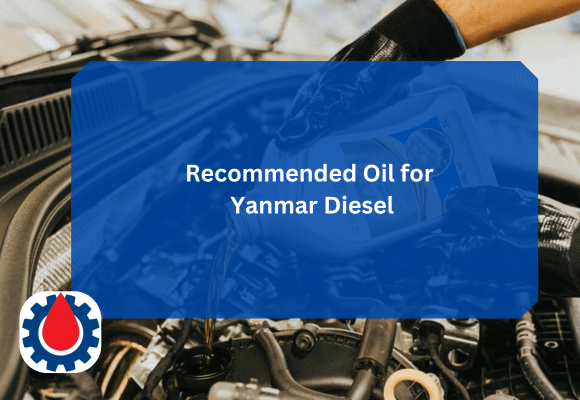Unlike gasoline engines, diesel power plants often operate at higher pressures and temperatures. This means they produce more soot and contaminants, which require oil with specialized additives to neutralize acids, disperse soot, and reduce wear.
Best Synthetic Engine Oil for Diesel Engines
1. Mobil 1 Turbo Diesel Truck 5W-40
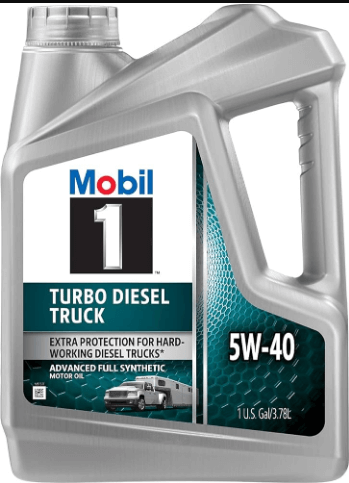
Key Features:
- API CK-4/SN certified
- Outstanding wear protection
- Excellent cold flow performance
Pros:
- Great for heavy-duty trucks and off-road use
- Performs exceptionally in both hot and cold climates
- Trusted by fleet operators
Cons:
- Slightly more expensive than others
Who Should Use It?
Ideal for trucks and diesel SUVs that demand long drain intervals and operate under tough conditions.
2. Shell Rotella T6 Full Synthetic 5W-40
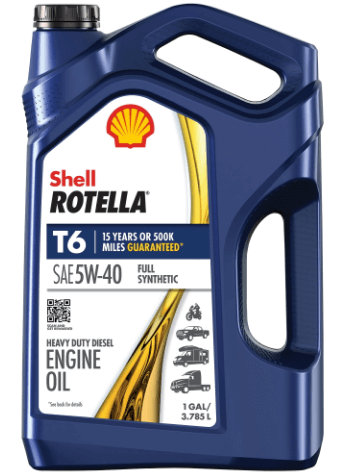
Key Features:
- Triple Protection Plus Technology
- API CK-4, CJ-4, CI-4 Plus certified
- Compatible with exhaust after-treatment systems
Pros:
- High TBN for longer intervals
- Great soot control
- Widely available and competitively priced
Cons:
- May be too thin for older engines needing 15W-40
Who Should Use It?
Perfect for daily drivers, RVs, and newer diesel engines with DPF systems.
3. Valvoline Premium Blue Extreme 5W-40
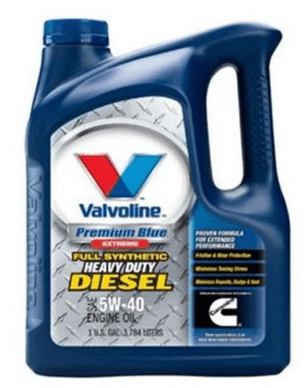
Key Features:
- Endorsed by Cummins
- Exceptional oxidation resistance
- Broad operating temperature range
Pros:
- OEM approval from major diesel engine makers
- Balanced formula for performance and protection
Cons:
- Limited availability in some regions
Who Should Use It?
Best for Cummins-powered trucks and high-mileage diesel engines.
4. Amsoil Heavy-Duty Synthetic Diesel Oil 5W-40
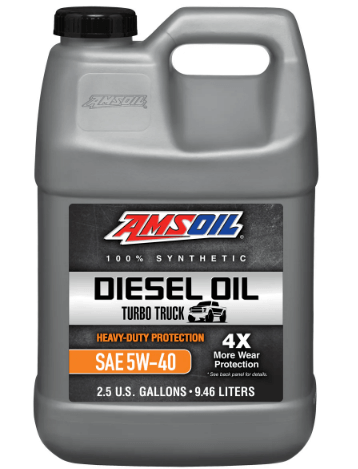
Key Features:
- Extended drain intervals
- Superior shear stability
- Low volatility for reduced oil consumption
Pros:
- Designed for high-load, high-heat engines
- Excellent in towing applications
Cons:
- Premium price
Who Should Use It?
Great for fleet vehicles, heavy haulers, and commercial diesel operators.
5. Royal Purple Duralec Ultra 15W-40

Key Features:
- High film strength
- API CJ-4/SM approved
- Synerlec additive technology
Pros:
- Great protection against metal wear
- Good for older diesels
Cons:
- Heavier oil; is not ideal for cold starts
Who Should Use It?
Recommended for older diesel engines and hot climates.
Related Best Synthetic Engine Oil(Top 5 Best in 2025)
Role of Synthetic Oil in Diesel Engines
Synthetic oils are engineered to perform under extreme conditions. They offer superior thermal stability, resist breakdown, and maintain viscosity in both hot and cold environments, making them perfect for demanding diesel engines.
What to Look for in a Synthetic Diesel Engine Oil
Viscosity Ratings (15W-40, 5W-40, etc.)
The viscosity rating tells you how the oil behaves in cold starts and high heat. For instance, 5W-40 flows well in winter while still protecting under high operating temps. Choose based on your climate and engine design.
API and ACEA Certifications
Look for oils certified by the American Petroleum Institute (API) with ratings like CK-4 or CJ-4, and ACEA classifications like E9 or E7, ensuring modern emission system compatibility and enhanced wear protection.
Additives and Engine Protection
High-quality diesel oils contain detergents, dispersants, and anti-wear additives that protect against sludge, oxidation, and metal-to-metal contact.
Related Diesel Engine Oil Grades Chart(Ultimate Guide)
Fuel Economy and Cold Start Performance
Many synthetic oils improve fuel economy by reducing engine drag and ensuring smoother starts in cold weather, important for both performance and cost savings.
Synthetic vs. Conventional Diesel Oils
Benefits of Synthetic Oils
- Longer drain intervals
- Better fuel economy
- Greater thermal stability
- Enhanced cold-start performance
- Reduced sludge and deposits
Related Dino Oil vs Synthetic Oil(Shocking Performance Differences)
When to Use Conventional Oils
Conventional oil is still suitable for older engines or those that don’t run under extreme conditions. It’s budget-friendly but requires more frequent changes.
Maintenance Tips for Diesel Engines Using Synthetic Oils
Oil Change Frequency
Even with synthetic oil, follow your engine’s manufacturer guidelines. Typically, 7,500–15,000 miles is common with synthetic diesel oils.
Monitoring Oil Quality
Use dipstick checks and oil analysis kits to assess oil health, especially for fleet or long-haul operations.
Diesel Particulate Filters and Synthetic Oil
Use low-ash synthetic oils compatible with DPFs to avoid clogging and meet emission standards.
Related Engine Oil Filter Comparison Chart(7 Best Oil Filters 2025)
FAQs
Can synthetic oil increase diesel engine life?
Yes, by reducing friction and keeping the engine cleaner, synthetic oil extends engine life.
Is synthetic oil worth it for older diesel engines?
Absolutely, especially if the engine is still in good shape. Choose a viscosity that suits older seals.
How often should synthetic oil be changed in diesel engines?
Generally every 10,000 to 15,000 miles, but follow OEM recommendations.
Can synthetic oil cause leaks in diesel engines?
In very old engines, it may reveal existing seal issues, but it doesn’t cause leaks.
What’s the best oil for winter driving in diesels?
5W-40 synthetic oils are ideal due to their excellent cold flow characteristics.
Can I mix synthetic and conventional oil in diesel engines?
Yes, but it’s not recommended for long-term use. Stick to one type for consistency.
Final words
Choosing the best synthetic engine oil for diesel engines ensures your vehicle runs cleaner, lasts longer, and performs better in all conditions. Whether you drive a pickup, commercial truck, or RV, investing in a top-tier synthetic oil like Mobil 1, Rotella T6, or Amsoil will protect your engine for miles to come.


